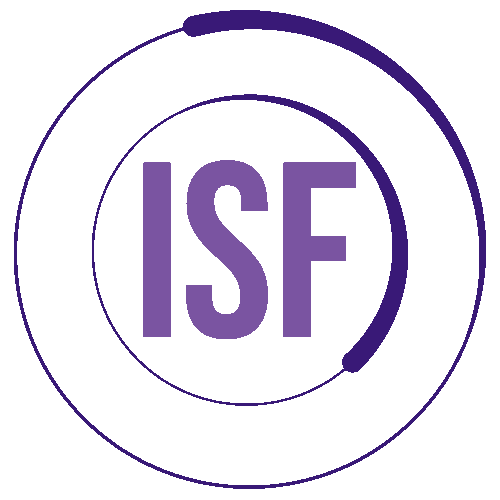 The Children’s Oncology Group is the first line of defense for a child diagnosed with cancer–including neuroblastoma. In 2016, we were so proud to have been able to donate a total of $175,000 to three of their children’s cancer trials and programs for 2017. Next month, we are excited to have Dr. Peter Adamson, Chair of the Children’s Oncology Group, with us in Charlotte to speak at a private event. We look forward to hearing more about the advancements of the trials and programs you helped us fund. Below you can read what each children’s cancer trial or program entails.
The Children’s Oncology Group is the first line of defense for a child diagnosed with cancer–including neuroblastoma. In 2016, we were so proud to have been able to donate a total of $175,000 to three of their children’s cancer trials and programs for 2017. Next month, we are excited to have Dr. Peter Adamson, Chair of the Children’s Oncology Group, with us in Charlotte to speak at a private event. We look forward to hearing more about the advancements of the trials and programs you helped us fund. Below you can read what each children’s cancer trial or program entails.
FRONTLINE MIBG THERAPY | $100,000
We are proud to have donated 100K for a Phase 3 trial to specifically evaluate the effectiveness of frontline MIBG therapy for children with newly diagnosed high-risk neuroblastoma that will open in the summer of 2017. Up to 800 patients will enroll on this trial. A trial of this scale will not only answer key clinical questions regarding targeted therapies, but will also provide an unprecedented opportunity to evaluate novel biomarkers that may guide treatment for future patients. We hypothesize that rational selection of therapy based on results of validated biomarker studies will improve the care of children with newly diagnosed high-risk neuroblastoma, thereby reducing the number of children who relapse and reducing the burden of late effects of therapy. ISF will be supporting this study as well as the cost of supplying blood and tumor samples that will help us understand which children are most likely to benefit from MIBG therapy.
CIRCULATING TUMOR DNA | $50,000
Could you imagine if we could prevent some of the frightening processes that children have to go through just to detect cancer? The treatments are tough enough so we are eager to see another option for these kids who are facing so much already. By supporting Project Every Child in 2017, ISF is helping an exciting technology that has been developed within test tubes that will allow cancer to be detected through a blood test. Circulating tumor DNA may provide a method for monitoring disease status during treatment and may be a means with which to detect changes in neuroblastoma mutation status without the need for invasive biopsies. Currently, children are put through painful procedures as well as exposure to repeated radiation to determine if cancer is present in their system, which may no longer be necessary with this new technology.
PROJECT EVERY CHILD | $25,000
Project EveryChild is a single research study run by The Children’s Oncology Group that aims to capture the biology and outcome of every child diagnosed with cancer in the United States. Participation is offered to every child diagnosed with cancer, no matter how common or rare the cancer may be. The ultimate goal is to collect biospecimens, including tumor tissue, host, and when feasible, parental DNA samples, which are stored at the COG’s state-of-the-art biorepository at Nationwide Children’s Hospital in Columbus, Ohio. These samples may then be utilized by any scientist in their studies to find new and improved cure for pediatric cancer.
is a single research study run by The Children’s Oncology Group that aims to capture the biology and outcome of every child diagnosed with cancer in the United States. Participation is offered to every child diagnosed with cancer, no matter how common or rare the cancer may be. The ultimate goal is to collect biospecimens, including tumor tissue, host, and when feasible, parental DNA samples, which are stored at the COG’s state-of-the-art biorepository at Nationwide Children’s Hospital in Columbus, Ohio. These samples may then be utilized by any scientist in their studies to find new and improved cure for pediatric cancer.
 We LOVE the Carolina Panthers and excited to see them play in the first pre-season game tonight. Make-A-Wish Central & Western North Carolina and The Carolina Panthers Top Cats made her an honorary Top Cat for the day in November of 2011. She was low on energy but she muscled up the strength for the day. The crowd was so amazing to her and everyone on the Panthers organization laid out the red carpet for the Santos family. Her picture still hangs in the Top Cat locker room to this day.
We LOVE the Carolina Panthers and excited to see them play in the first pre-season game tonight. Make-A-Wish Central & Western North Carolina and The Carolina Panthers Top Cats made her an honorary Top Cat for the day in November of 2011. She was low on energy but she muscled up the strength for the day. The crowd was so amazing to her and everyone on the Panthers organization laid out the red carpet for the Santos family. Her picture still hangs in the Top Cat locker room to this day.




 The Children’s Oncology Group
The Children’s Oncology Group